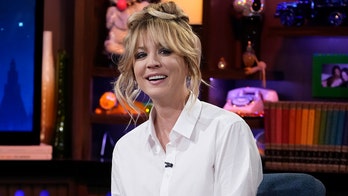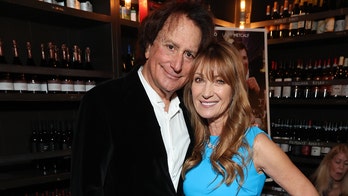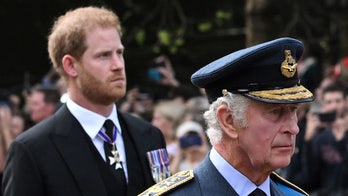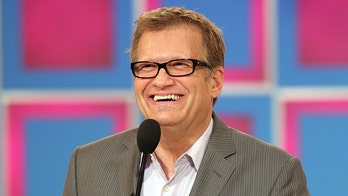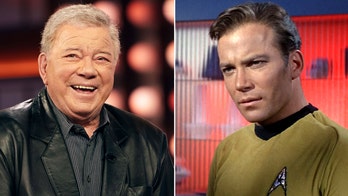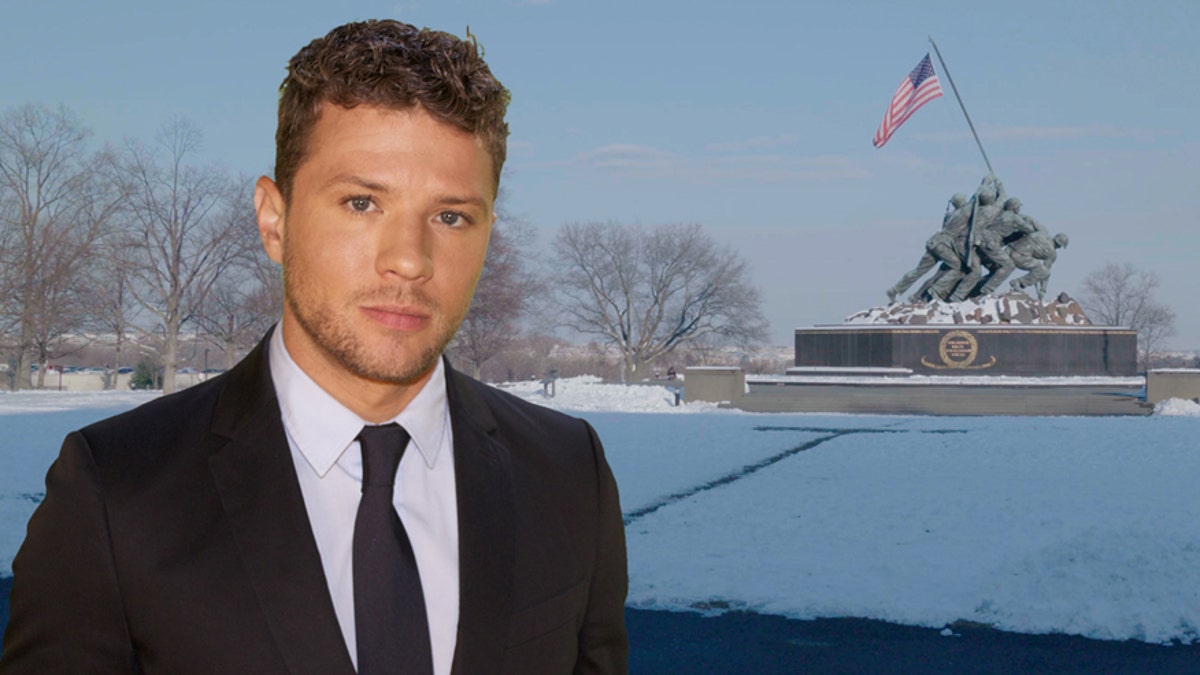
LOS ANGELES – Ryan Phillippe's initial connection to Iwo Jima came through his "Flags of our Fathers" role as John "Doc" Bradley, one of the men who helped raise the American flag on the island. Now, he's narrating the PBS documentary, "Iwo Jima: From Combat to Comrades," the story of the American and Japanese surviving servicemen who came together 70 years after the horrific battle for a historic reunion in March 2015.
The battle for Iwo Jima -- in which almost 7,000 Americans and almost triple that amount of Japanese were killed -- was deemed necessary because capturing the island, 650 miles from Tokyo, helped turned around the war for the U.S., especially in terms of providing an airbase to launch bombing missions over Japan.
"There was something like 14 miles of tunnels made by the Japanese on an 8-square mile island, which had hidden pillboxes where they could take out Marines who couldn't see them at all," Phillippe told FOX411. "The whole Iwo thing was hellish."
Iwo Jima is, of course, the locale of the iconic, Pulitzer Prize-winning photo, shot on the top of the island's Mt. Suribachi on Feb. 23, 1945 when U.S. Marines successfully fought their way up the side of the dormant volcano vent and planted the American flag.
Morale was very low at that time, according to U.S. Marine Hershel "Woody" Williams, one of the veterans who made the trip back to Iwo Jima for the "Reunion of Honor," as the battle was not yet won and there were thousands of dead servicemen strewn over the island. But seeing the Stars and Stripes flying atop Mt. Suribachi gave the troops the strength to fight on.
"It was a big morale boost, which is what the crux of 'Flags of our Fathers' was about," says Phillippe, whose grandfathers fought in World War II and whose father and uncles served in Vietnam. "That photograph was used in propaganda and really renewed the war effort because people were fatigued."
Another firsthand account from the documentary recounting the skirmish that took place over 35 days is that of Army Air Corps fighter pilot Jerry Yellin. Yellin, who lost 11 friends in the battle for Iwo Jima, talks about the hatred he carried for the enemy even after the war, until the day his son married a Japanese woman and gave him Japanese grandchildren.
"You see the evolution in people sharing feelings, their views of each other as enemies then and what they are now," says Phillippe. "That's what's great about this documentary."
The Japanese POV is provided by Tsuriji Akikusa, the only Japanese survivor able to make the trip to Iwo Jima, whose life was spared by U.S. troops. Through translators he talks about his feeling that American fighting men are unique. He says they are merciful. Part of the reason he came to the reunion was to thank them.
"I would hope most of us and the best of us are that way," says Phillippe. "He was also speaking to the opposite. He was making a cultural distinction. In Japan, [the soldiers] were taught their life was meaningless. They weren't supposed to come back alive. It was [considered] shameful. And we were the opposite. At that point in American history, we really celebrated our soldiers."
This Veteran's Day, Phillippe, who is on location shooting a pilot for a potential cable series in which he would play Stephen Hunter's fictional hero, retired Marine Gunnery Sergeant Bob Lee Swagger, says he will take the time to remember the men and women who have served their country.
"I think it is a day to give some thought and some consideration to the sacrifice," he says.
The PBS documentary, "Iwo Jima: From Combat to Comrades," airs Tuesday, November 10 on PBS.
